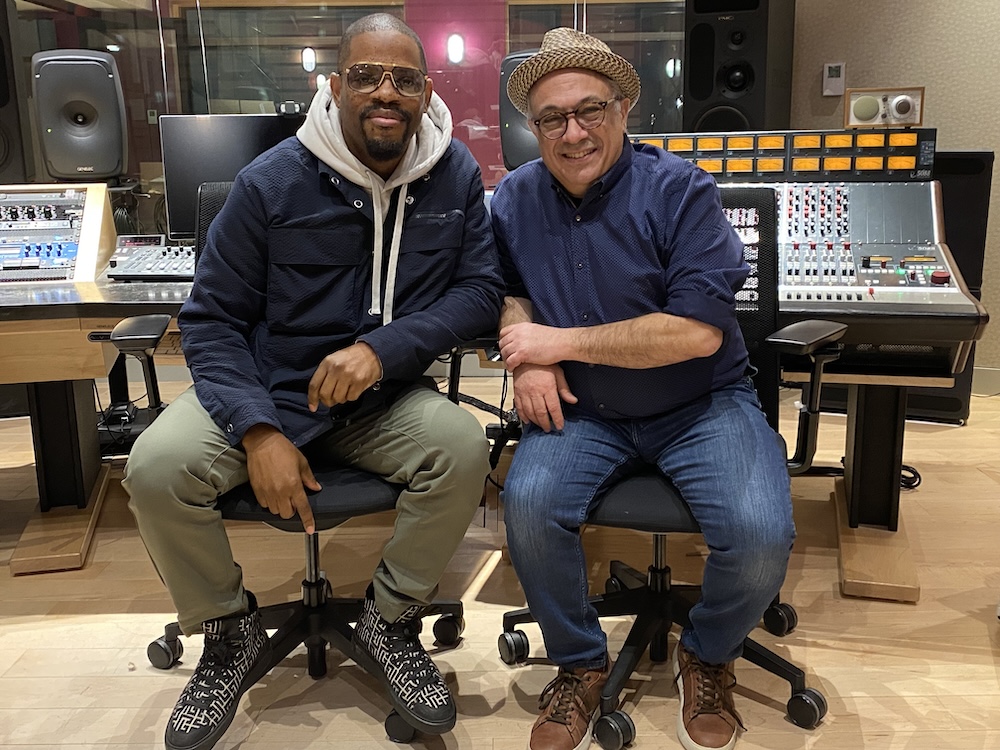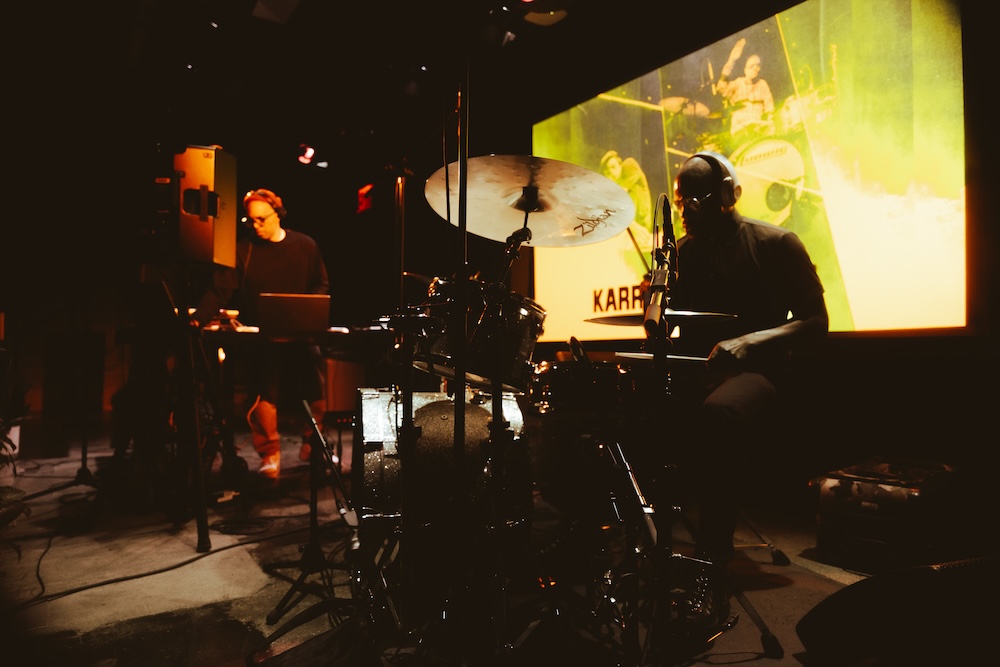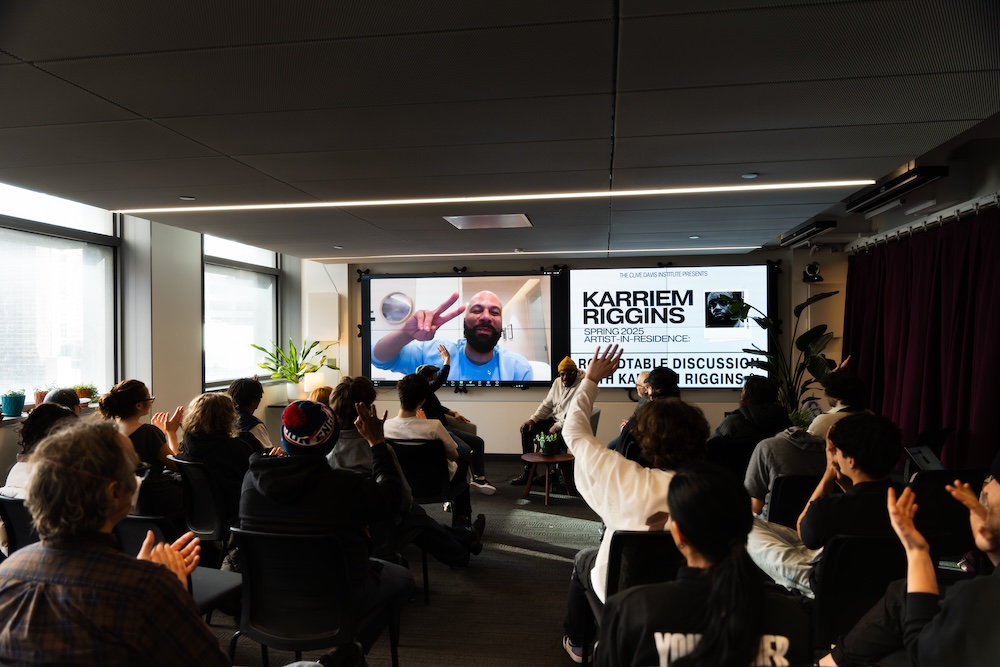This spring, Emmy Award-winning and Grammy-nominated musician, producer, composer, and DJ Karriem Riggins joined the Clive Davis Institute of Recording Music as an artist-in-residence, leading a 7-week college course on the intersection of jazz and hip hop alongside co-teacher and Grammy Award-winning professor Ashley Kahn. As part of his time at Tisch, Riggins participated in four unique events with Clive Davis Institute students, including a live performance, a workshop on the art of sampling packs, a student feedback session, and a roundtable discussion with special guest Common.
Born in Detroit to a musical family and a keyboardist father, Riggins is the rare artist whose fluency straddles both classic and contemporary music. An unusually talented drummer with keen producing instincts, Riggins has helped foster the evolving union between jazz and hip hop while furthering both genres. After originally meeting in the mid-90s, Riggins forged long-term creative collaborations with Chicago rapper Common and fellow Detroit hip-hop artist, the late J Dilla. His thriving relationship with Dilla led to a significant role in completing his posthumous album, The Shining.
As a touring and session drummer, and more recently in the role of producer, Riggins has worked with a stellar list of legendary artists that includes Erykah Badu, Paul McCartney, Stevie Wonder, The Roots, Norah Jones, Ray Brown, Steve Lacy, Diana Krall, Common, Robert Glasper, H.E.R., and Madlib. In 2018, he formed the supergroup August Greene along with Common and Robert Glasper, and received the Emmy for Outstanding Original Music and Lyrics for their song “Letter to the Free,” featured in the documentary 13th, directed by Ava DuVernay.
We recently connected with Karriem Riggins and Clive Davis Institute Professor Ashley Kahn to reflect on their insights teaching the course and engaging with the fearless creativity of young artists.


